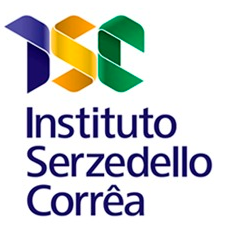Tribunal de Contas da União
Revision of ISSAI 140: TCU is a pioneer in implementing changes in audit quality management
In November 2023, the revision of ISSAI 140 – the standard that addresses audit quality control for Supreme Audit Institutions (SAIs) – was approved by the Executive Board of the International Organization of Supreme Audit Institutions (INTOSAI). With the revision of ISSAI 140, SAIs will start conducting quality control based on risks. For this, they will need to establish quality objectives, identify risks that threaten these quality objectives, and conduct a risk assessment process of risks with the highest potential damage to quality objectives.
The revised standard will come into effect in 2025. However, the Brazilian Federal Court of Accounts (TCU) began studying the subject as early as 2022. Even before the approval of ISSAI 140's revision, in July 2023, . In September, the that may affect the quality objectives established by the Committee. In 2024, the Court continues with the implementation of measures to mitigate the identified risks.
The ISSAI 140 is being updated to ensure that the work meets the expected quality standards, is based on solid principles, and produces reliable results, assisting in the transparency, accountability, and effectiveness of government audits worldwide.
"The TCU is one of the organizations leading the implementation of quality objectives. Quality management based on risk requires auditors to understand this new logic in order to participate in the process, each within their level of responsibility. The Court started putting into practice in 2023 what SAIs will only be required to do by 2025”, explains the Director of Methods and Quality Management, an area linked to the Audit Department of Methods and Innovation for Control (AudInnovation), Salvatore Palumbo.
______________________________________________________
Professional standards are essential to provide credibility, quality, and professionalism to audits in the public sector. The current benchmark for INTOSAI standards is the "INTOSAI Framework of Professional Pronouncements" (IFPP). The IFPP brings together the principles (INTOSAI-P), the standards (ISSAI), and the guidance (GUID) developed by INTOSAI.
The International Standards of Supreme Audit Institutions (ISSAI) provide guidance to SAIs in collecting, processing, analyzing, and communicating information related to the planning and performance of government activities.
______________________________________________________
The project supports SAIs in the development of quality management systems.
The INTOSAI Development Initiative (IDI) is supporting 12 SAIs in creating their Systems of Audit Quality Management (SoAQM). These are institutions that are part of EUROSAI, CAROSAI, ASOSAI, and AFROSAI-E, such as the SAIs Albania, Cyprus, Azerbaijan, and Eritrea, among others.
The pilot includes the development of a guidance document to assist SAIs in determining policies and procedures related to quality objectives and the provision of professional education and support actions for participating institutions.
Revision of ISSAI 140
The Strategic Development Plan of INTOSAI Standards for 2020-2022 included the revision of ISSAI 140 with the purpose of producing an INTOSAI quality management standard based on ISQM1/2 (International Standard for Quality Management 1/2).
The Revision Project of ISSAI 140 involved updating and enhancing this standard to meet the constantly evolving needs of audit institutions and ensure its ongoing relevance and effectiveness.
The working group for the Revision Project of ISSAI 140 consisted of 26 participants from 16 SAIs. Two teams were established for the work: an editorial team, led by the European Court of Auditors (ECA), and a second team to review IFPP's other pronouncements to identify the need for appropriate amendments. Other members of the working group acted as quality reviewers.
After reviews by the FIPP (Forum of INTOSAI Professional Pronouncements) and endorsement of the final text, the revision was completed and submitted for approval by the Governing Board in November 2023.


